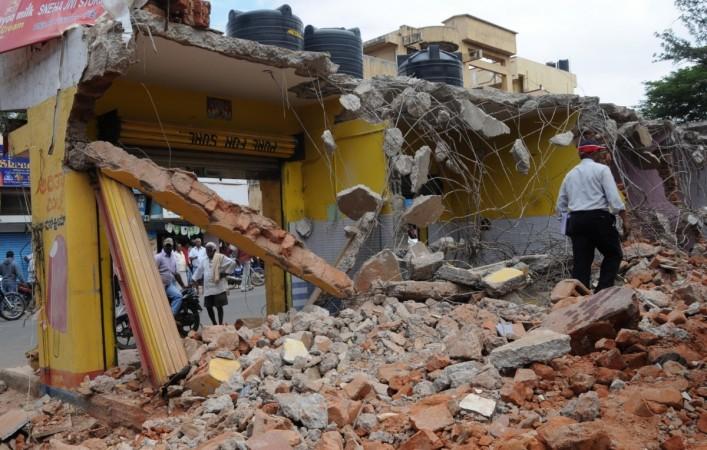
The demolition drive against illegal structures by Bengaluru's (Bangalore) civic body to clear encroachments on public places, stormwater drains and lakebeds could face a legal hurdle. The powers to demolish could go against a constitutional right to property in India.
The zeal with which the BBMP (Bruhat Bengaluru Mahanagara Palike) is removing illegal structures for the past seven to 10 days is based on sweeping powers granted under the Karnataka Municipal Corporations Act (KMCA). The BBMP commissioner need not even give notice of demolition under Section 288D of the KMCA, 1976.
However, this is being seen as running contrary to the constitutional rights given to Indian citizens relating to the right to property. An amendment to the Indian Constitution in 1978 deprived the right to property of its fundamental character but Article 300A still gives enough protection to Indians when it comes to right to property.
In case of the ongoing demolitions in Bengaluru, the issue is complex, given that the constructions came up after the plans were purportedly approved by the BBMP. Therefore, if it wants to demolish the structures now, it has to give due notice to the occupants and not invoke Section 288D (that dispenses with the need to serve notice), according to legal experts.
"288D. Commissioner may without notice remove encroachment.- Notwith-standing anything contained in this Act, the Commissioner may, without notice, cause to be removed,- (a) any wall, fence, rail, step, booth or other structure or fixture which is erected or set up in contravention of the provisions of section 288A; (b) any stall, chair, bench, box, ladder, bale, or any other thing whatsoever, placed or deposited in contravention of section 288B; (c) any article, whatsoever, hawked or exposed for sale in any public place or in any public street in contravention of section 288C and any vehicle, package, box, board, shelf or any other thing in or on which such article is placed, or kept for the purpose of sale."
"The BBMP's action appears to be arbitrary, as it did not follow due process of law," former Karnataka Advocate-General B.V. Acharya told The Hindu.
Article 300A says "No person shall be deprived of his property save by the authority of law". The term "law"' as defined in the above-referred provision is "understood to mean only legislation or a statutory rule or order and exclude "executive fiats." Besides, the source of the "law" depriving a person of his property has to be necessarily traced, through a statute, to the legislature, according to an interpretation by a website called Lawyers Club India.
Acharya said the current demolition drive goes against the principles of natural justice and the time has come to test the Constitutional validity of Section 288D of the KMCA.

















